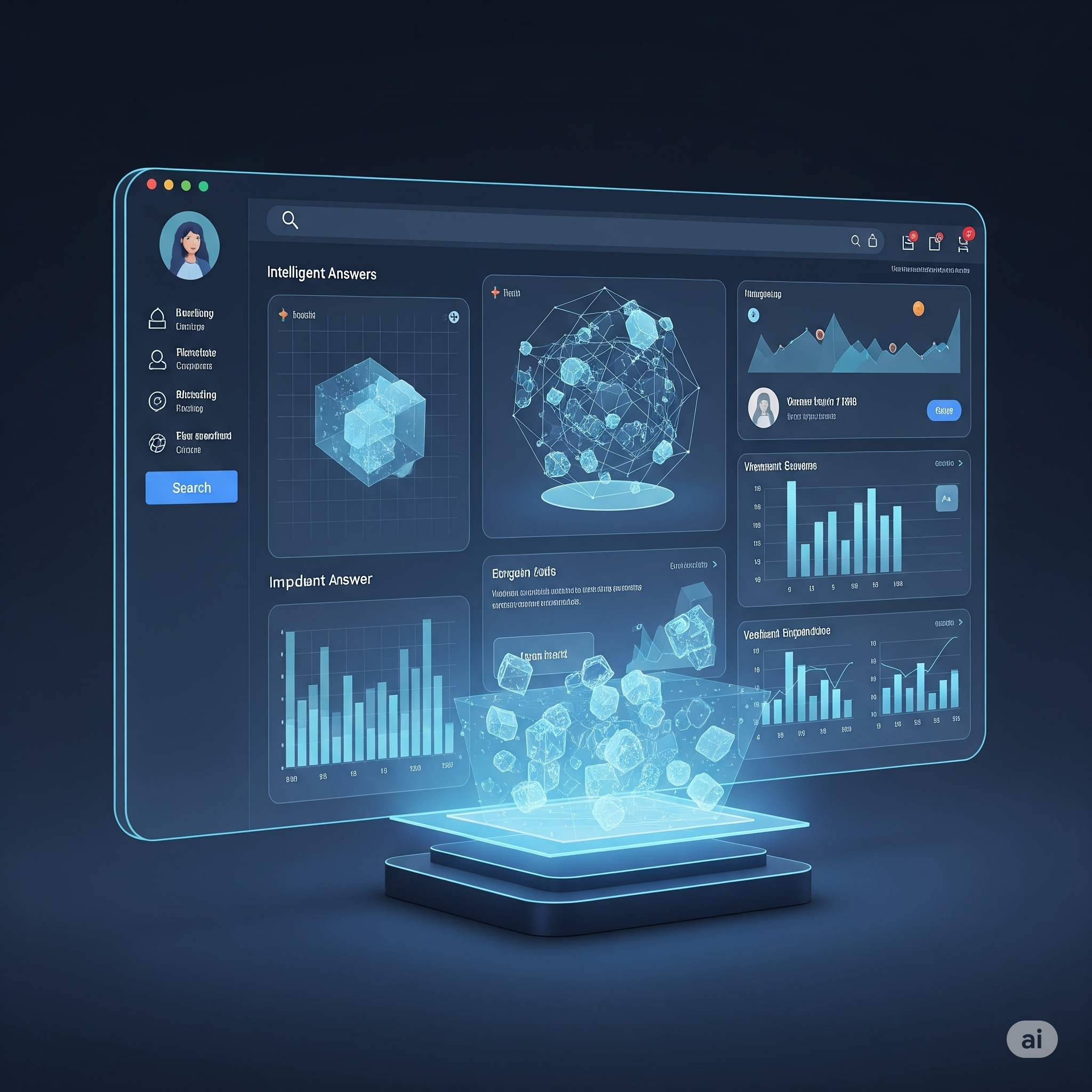For over two decades, the familiar rhythm of online search has been consistent: type a query, receive a list of hyperlinked “blue links,” and then click through to find the information you need. This paradigm, while revolutionary in its time, is now facing a significant disruption. The rise of sophisticated Artificial Intelligence is poised to fundamentally alter how we discover and interact with information online, potentially signaling the beginning of the end for the dominance of the blue link.
Beyond Keyword Matching: The Dawn of Intelligent Answers
The traditional search engine relies heavily on matching keywords in your query with keywords on web pages. While algorithms have become increasingly sophisticated at understanding search intent, the fundamental process remains largely the same: presenting a catalog of potentially relevant resources for you to sift through.
Enter AI. Modern AI models, particularly large language models (LLMs), possess a far deeper understanding of language, context, and relationships between concepts. This allows search engines powered by AI to move beyond simply listing web pages and towards providing direct, synthesized answers and insights.
Think about the recent advancements:
- Generative AI in Search: Platforms are integrating generative AI to produce concise summaries, generate creative content, and even answer follow-up questions in a conversational manner, all within the search results page.
- Natural Language Understanding (NLU): AI excels at understanding complex and nuanced queries phrased in natural human language, eliminating the need for precise keyword combinations.
- Knowledge Graphs: AI-powered knowledge graphs connect vast amounts of information, allowing search engines to understand relationships between entities and provide more contextual and comprehensive answers.
- Multimodal Search: The ability to search using images, voice, and eventually even video will further reduce our reliance on text-based queries and the subsequent list of links.
The Shifting User Experience: Immediacy and Efficiency
The implications of this AI-driven transformation for the user experience are profound. Imagine needing to know the best way to bake a specific type of cake at high altitude. Instead of sifting through numerous recipes and forum discussions, an AI-powered search engine could:
- Understand your complex query: Recognizing the key factors of cake type and altitude.
- Synthesize information: Drawing from countless recipes and baking science resources.
- Generate a tailored answer: Providing a concise recipe with necessary adjustments for your specific conditions.
- Offer follow-up advice: Engaging in a conversational exchange to refine the answer based on your preferences or available ingredients.
This experience is characterized by immediacy and efficiency. Users get the information they need directly, without the friction of navigating multiple websites, comparing different sources, and extracting the relevant details themselves.
The Impact on Businesses and Content Creators
The potential decline of the blue link has significant ramifications for businesses and content creators:
- SEO Evolution: Traditional Search Engine Optimization (SEO) focused on ranking high in the list of blue links. In an AI-driven search landscape, the focus will shift towards providing comprehensive, trustworthy, and easily digestible information that AI can readily understand and synthesize. Content optimized for direct answers and featured snippets will become even more critical.
- The Importance of E-A-T (Expertise, Authoritativeness, Trustworthiness): As AI prioritizes reliable sources for its answers, demonstrating strong E-A-T will be paramount for content to be considered and utilized by these intelligent systems.
- New Forms of Content: We may see the rise of content specifically designed for AI consumption, potentially structured in more machine-readable formats.
- Challenges for Traffic and Visibility: Businesses that heavily rely on organic traffic from traditional search may need to adapt their strategies to ensure their information is still discoverable and utilized in this new environment.
Navigating the Transition: Opportunity and Adaptation
While the “death” of the blue link might be an overstatement in the immediate future, its dominance is undoubtedly being challenged. The shift towards AI-powered search presents both opportunities and challenges:
- Opportunity for Enhanced User Experience: Ultimately, these changes aim to provide users with faster, more relevant, and more helpful information.
- Opportunity for Innovation: New ways to create and deliver information will emerge, fostering innovation in content creation and online business models.
- The Need for Adaptation: Businesses and individuals need to stay informed about these evolving search paradigms and adapt their strategies accordingly. Understanding how AI consumes and synthesizes information will be crucial for continued online visibility and success.
Conclusion: Embracing the Intelligent Future of Search
The familiar landscape of search engines is undergoing a seismic shift, driven by the transformative power of Artificial Intelligence. While blue links may not disappear entirely, their role as the primary gateway to online information is likely to diminish. We are entering an era of intelligent answers, conversational search, and a more direct, efficient, and personalized information discovery experience. Embracing this evolution and understanding its implications will be key to navigating the future of the web. The question is not if AI will reshape search, but how profoundly, and how quickly we will adapt to a world beyond the blue link.
Discover more from Nexus
Subscribe to get the latest posts sent to your email.
